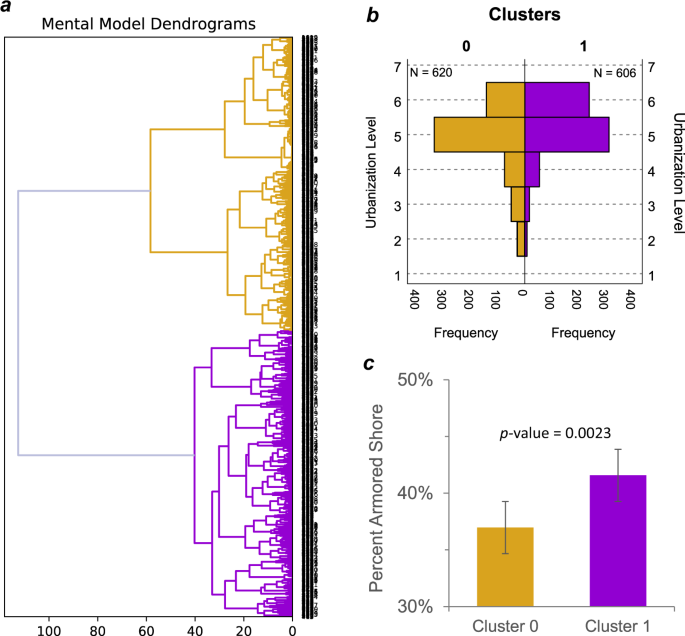2022-05-04 アメリカ国立標準技術研究所(NIST)
この研究の著者らは、統計学と認知科学の手法を用いて、米国東海岸全域の1,400人の住民を対象に行った調査のデータを分析しました。その結果、都市部の住民は郊外の住民に比べて、沿岸の生態系についてより単純で現実的でない理解をしていることが分かりました(学術誌『npj Urban Sustainability』に掲載された論文)。また、都市部に住む人々は、環境保護のための行動をとる傾向が低いことも明らかになりました。この研究は、自然生態系に悪影響を与え、自然災害に対する地域社会の回復力を阻害する可能性のある問題を、著者らが都市化知識症候群と呼んでいることの根拠を示しています。
<関連情報>
- https://www.nist.gov/news-events/news/2022/05/study-links-urbanization-poor-ecological-knowledge-less-environmental
- https://www.nature.com/articles/s42949-022-00054-0
都市化する知識症候群-都市生活者のメンタルモデルにおける多様性とシステム思考の侵食 Urbanized knowledge syndrome—erosion of diversity and systems thinking in urbanites’ mental models
Payam Aminpour,Steven A. Gray,Michael W. Beck,Kelsi L. Furman,Ismini Tsakiri,Rachel K. Gittman,Jonathan H. Grabowski,Jennifer Helgeson,Lauren Josephs,Matthias Ruth &Steven B. Scyphers
npj Urban Sustainability Published: 04 May 2022
DOI:https://doi.org/10.1038/s42949-022-00054-0

Abstract
Coastal ecosystems nearby human societies collectively shape complex social-ecological systems (SESs). These ecosystems support high levels of ecological biodiversity while providing resources and services to humans. However, shoreline armoring, land transformation, and urban homogenization across urbanized coastal areas may degrade natural ecosystems and alter how humans and nature are connected. We hypothesize that these alterations extend to residents’ knowledge of SESs. We explore evidence of such cognitive outcomes in graphical mental models of more than 1350 coastal residents across eight states in the Northeast United States. Our results revealed that, in more urbanized areas, residents’ mental models underrepresented complex interdependence between humans and natural components, indicating limited systems thinking. Additionally, urbanization and shoreline armoring were associated with homogenization of mental models. We refer to these results as Urbanized Knowledge Syndrome (UKS). Importantly, respondents with more symptoms of UKS were less likely to self-report adoption of pro-environmental behaviors. These results indicate a potential societal-level erosion of ecological knowledge associated with urbanization in the same way more urbanized areas are associated with diminishing ecological function. Thus, diagnosing and treating UKS is an essential component of urban sustainability.

